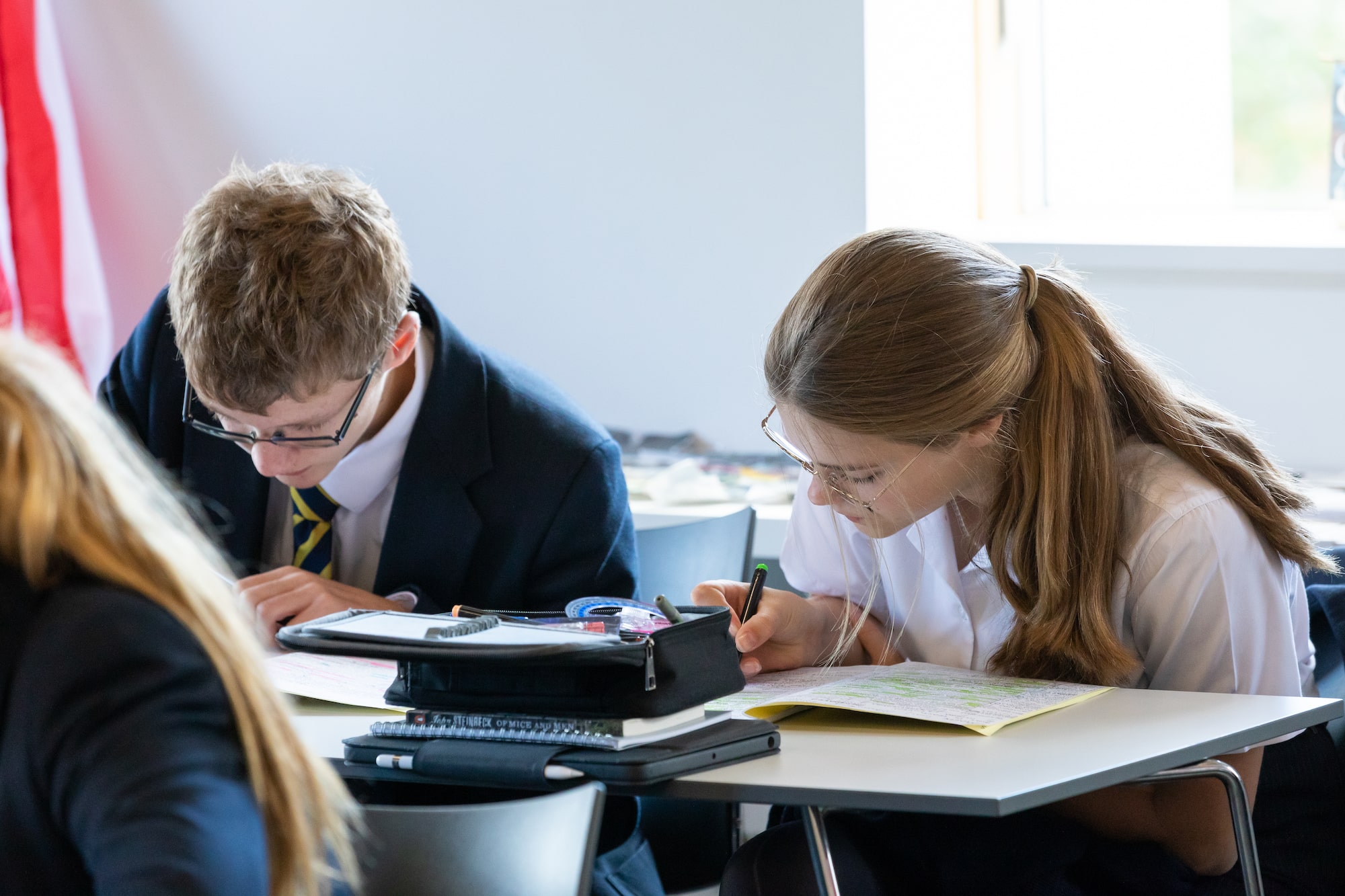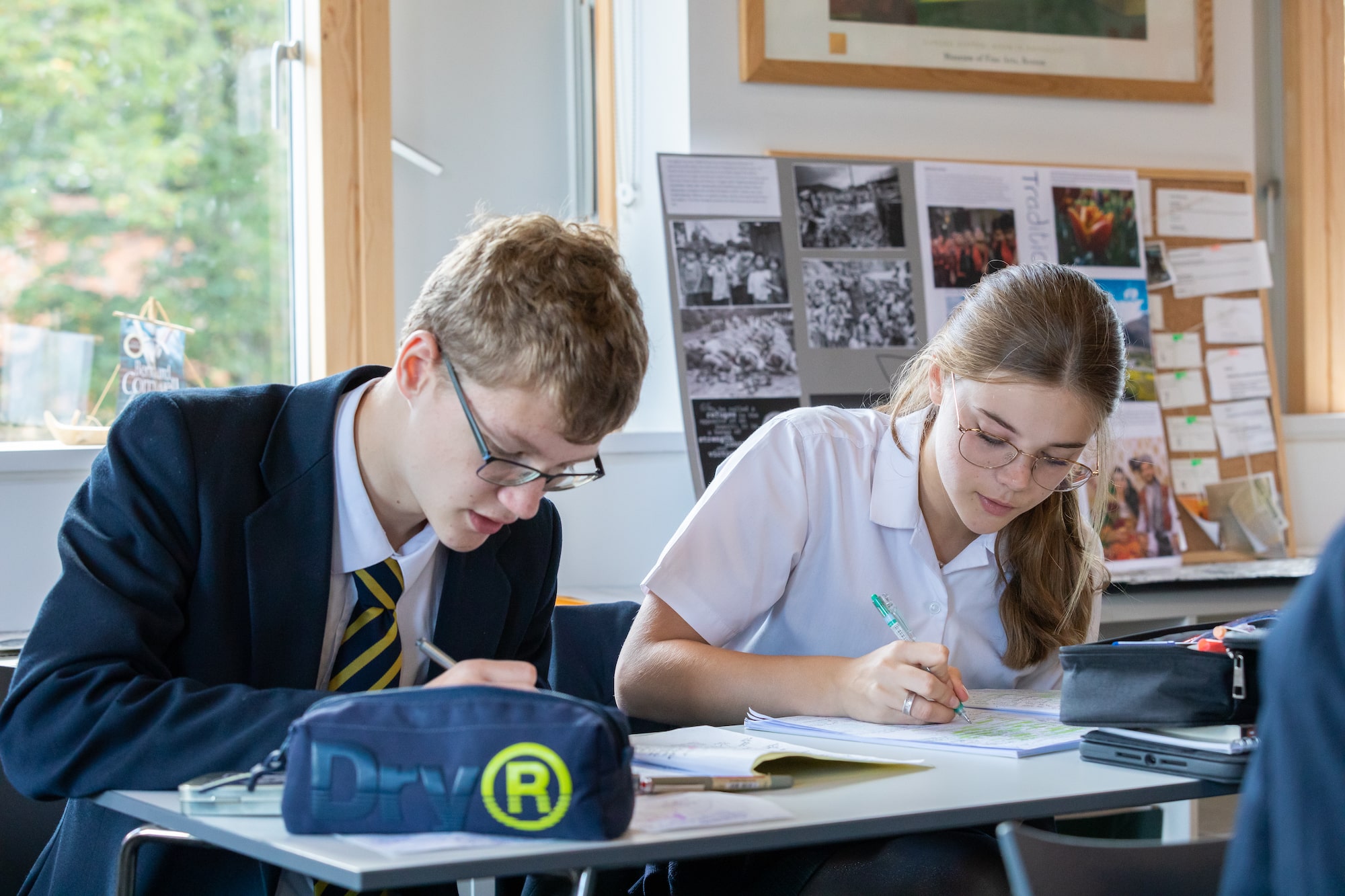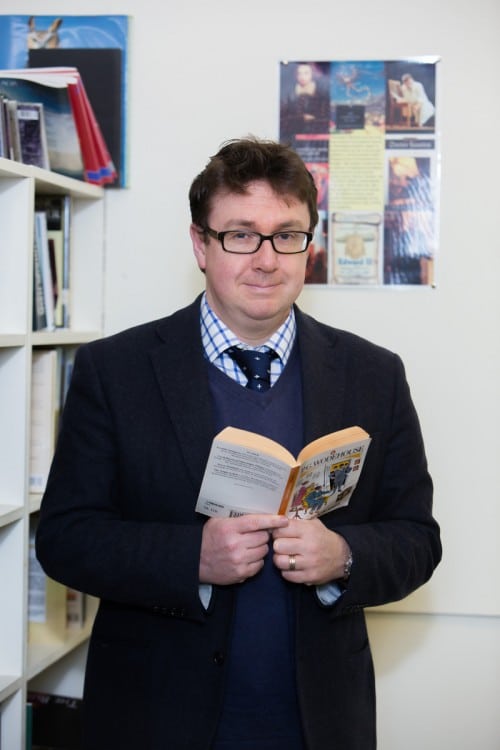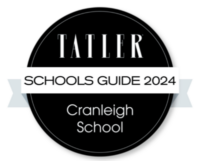We firmly believe at Cranleigh that the study of English should be interesting, stimulating and enjoyable. Our teaching is designed with these objectives in mind; we aim to produce students who have been genuinely engaged by the material they have read and who have developed a passion for the written word which will stay with them for life.
This a subject wonderfully rich in ideas, nuances and possibilities and we want our students to discover this for themselves. To this end, therefore, they are exposed to all sorts of texts and stimuli: the department is an experienced and talented one, with a wide range of interests, which they are actively encouraged to share with their students.
The tangible results of this philosophy are clear: we regularly have between 70 and 80 students studying English in the Sixth Form, making it one of the most popular subjects in the school.
The best moments in reading are when you come across something - a thought, a feeling, a way of looking at things - which you had thought special and particular to you. And now, here it is, set down by someone else, a person you have never met, someone even who is long dead. And it is as if a hand has come out, and taken yours.
Alan Bennett, The History Boys
In Year 9 at Cranleigh, students should expect to find themselves both challenged and engaged. They will be exposed to a wide range of texts, drawing on their teachers’ enthusiasm and expertise, and incorporating prose, poetry and drama. Students are encouraged to develop independent skills of annotation and note-taking and to write clear and cogent analytical essays, firmly anchored in the relevant text. One of the highlights of the Year 9 English programme is the Independent Reading Project, which enables the students to apply the skills they have learned to a book of their own choosing; they respond to it both creatively and analytically.
In Year 10 and Year 11, we follow the Edexcel IGCSE syllabus, for both English Language and English Literature. For English Language, students study an anthology of non-fiction pieces, covering subjects as diverse as donkey racing in Pakistan, hunting narwhals in the Arctic and travelling through Somalia at the height of famine. They will also focus on transactional writing – writing for specific purposes and audiences. For English Literature, they will study a wide and varied range of texts. In the exam, they will answer questions on a poetry anthology (including poems by the likes of Blake, Browning, Duffy, Keats, Kipling, MacNiece, Rossetti and Shakespeare) and a novel – either Of Mice and Men, Things Fall Apart, The Whale Rider or To Kill a Mocking Bird. All students also study a play by Shakespeare (either Macbeth or The Merchant of Venice) as part of their coursework.
We follow the Edexcel specification at A Level. There are three examined papers – Drama, Poetry and Prose – which offer students access to a wide range of stimulating and enjoyable texts. There is also a coursework component, worth 20%, in which students write a comparative essay about two texts.
Lessons are taught in the newly built van Hasselt Centre, in which the English department has eight classrooms and its own library (the Leggitt Library), which is amply stocked with the sort of texts, both primary and secondary, that A-Level students need to be able to maximise their potential in this subject. Each A-Level class is allocated library lessons, during which they are shown how to use critical texts in the most efficient and effective manner.
Good English A-Level candidates are culturally curious people, who enjoy discussing books and plays. They are interested in the power of words, in what motivates human behaviour and in the historical, social and political contexts in which texts were written. Anyone who is considering studying English at A-Level is advised to speak to members of the Sixth Form who are currently taking the subject; the vast majority of Cranleigh A-Level students thoroughly enjoy their lessons, with large numbers opting to read English at university.
Trips and Events
We frequently take theatre trips to London, which is easily accessible from Cranleigh. We also run the Minot Society, for sixth form enrichment. There are two creative writing competitions each year, prizes for which are awarded at Speech Day: the James Harpur Poetry Prize and the Stacy Aumonier Prize for Short Story Writing.
Beyond School
English is regarded very positively by universities as a facilitating subject. Our A Level students go on to study a wide range of subjects; as well as a significant number reading English, others have gone on to study Law, Politics, Classics, History, International Relations, Sociology, Philosophy, Marketing and Journalism amongst others.
Head of English
Gordon Neill
Head of English












